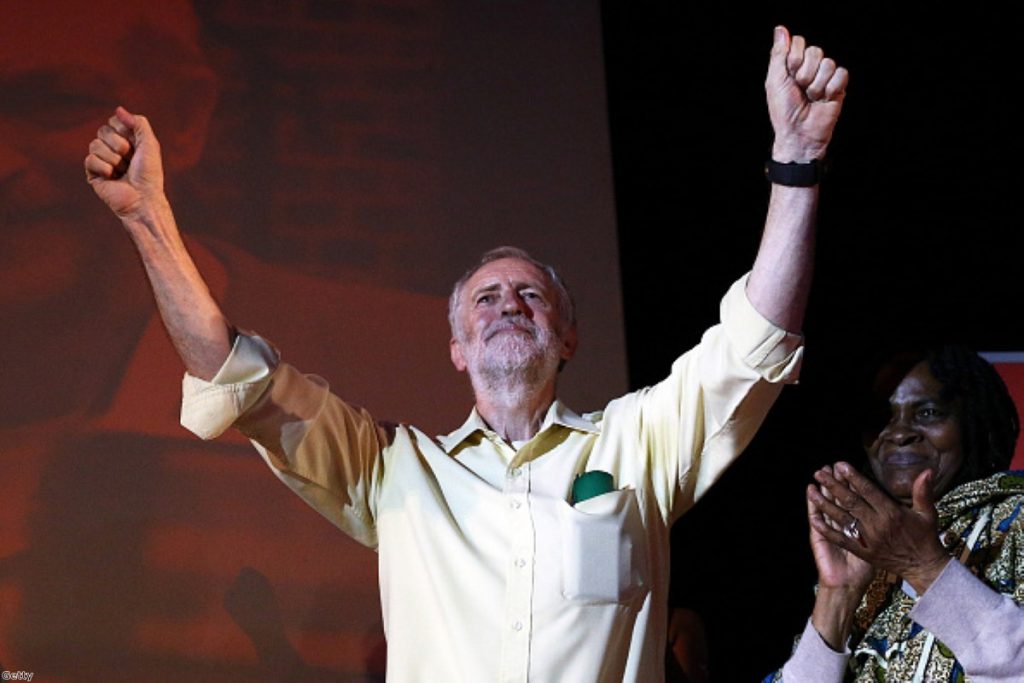The big political victories already chalked-up by Jeremy Corbyn
Both the national press and large sections of his own parliamentary party have so far been heavily critical of Jeremy Corbyn's leadership.
As a result he has not received the kind of honeymoon bounce in the polls that almost every new political leader would normally expect.
However, despite this, the new Labour leader has already chalked-up a number of major political victories, which shouldn't be overlooked.
1. The Saudi prison contract
There was some muttering when Jeremy Corbyn used his first conference speech to call for the Ministry of Justice to withdraw their bid to provide a prison training programme to the brutal Saudi Arabian regime. The contract, if passed, would have risked implicating the UK in the crucifixion of the pro-democracy campaigner Ali Mohammed al-Nimr.
Corbyn's comments seemed like a niche issue to include in a conference speech to some at the time. However, in hindsight it was a turning point in Britain's worrying relationship with the Saudi regime. Within days of Corbyn's speech, the prime minister faced one of his most difficult ever interviews on Channel Four News, in which Jon Snow cornered him about al-Nimr's case. As pressure built on the issue, both inside and outside government, Cameron and his foreign secretary finally relented and cancelled their £5.9 million bid with the Saudis. Justice Secretary Michael Gove rightly received credit for ending the contract. However, anyone doubting Corbyn's influence only needs to read the Saudi ambassador's angry subsequent piece in the Daily Telegraph complaining that Corbyn had "breached" the "mutual respect" between the two nations, adding that there had since been "an alarming change in the way Saudi Arabia is discussed in Britain". For many years, Britain's business dealings with the brutal Saudi regime have been an ugly family secret. Corbyn's intervention finally helped to bring it out into the open.

2. Shaker Aamer's release
The government today confirmed that Shaker Aamer will finally be released from Guantanamo Bay and allowed back to Britain. Aamer's case has long been championed by Jeremy Corbyn, who was co-chair of the parliamentary group on the issue. Corbyn also raised it in his first conference speech as leader.
"I attended an all-party delegation to Washington, in May of this year, which demanded his release," Corbyn said in a statement today. "The pressure mounted by the British Parliament contributed to Shaker's freedom."
Aamer's case, and the case of the other British citizens detained without charge in Guantanamo, has long been an unfashionable one in British politics. While it would be unwise for Corbyn to take personal credit for recent movements on this issue, it's fair to say that his long-term championing of it, alongside other MPs such as David Davis, appears finally to be paying off.

3. Prime Minister's Questions
Expectations of Corbyn's performance at prime minister's questions were not high. Not the greatest public speaker or debater, most commentators expected Cameron to wipe the floor with the new Labour leader. However, after just three attempts, Corbyn already appears to have mastered the format. His performance this week was understated yet brutally effective. His calm but persistent questioning of Cameron on tax credits made a difficult week for the prime minister significantly worse. His laid-back disappointed school-master stares, at the Tory benches and his (now limited) use of public questions appear to have both disarmed the Tory benches while highlighting some of Cameron's biggest weaknesses. Where Miliband often overreached himself in the chamber, Corbyn seems aware both of his skills and his limitations. The significance of these Wednesday lunchtime sessions shouldn't be overstated, but those hoping that Corbyn would make a mess of PMQs have so far been proven very wrong.

4. Tax credits
Corbyn's biggest victory by far came this week, however, when Labour forced the government to retreat on their planned cuts to tax credits. Labour's decision to ignore parliamentary convention and allow the Lords to vote down the cuts caused the government not only to delay and possibly even scrap the cuts, but also contributed to the most difficult week for the chancellor George Osborne this parliament. Last night a Commons motion condemning the cuts was passed unanimously in the House with 20 MPs rebelling against their own party on the issue. With the government's majority below this number, it now looks increasingly difficult to see how Osborne can get his current plans to cut tax credits through. While just weeks ago the chancellor looked to be all-powerful and a dead cert to replace Cameron as Tory leader, he now looks very much like damaged goods. Corbyn deserves a significant part of the credit for that.
We are still in very early days of the parliament and the Labour leader clearly faces an incredible number of challenges in the coming months.
However, while Corbyn's cup may not be overflowing with good cheer quite yet, there are a number of reasons for the new Labour leader to be pleased with his performance so far.






-01.png)